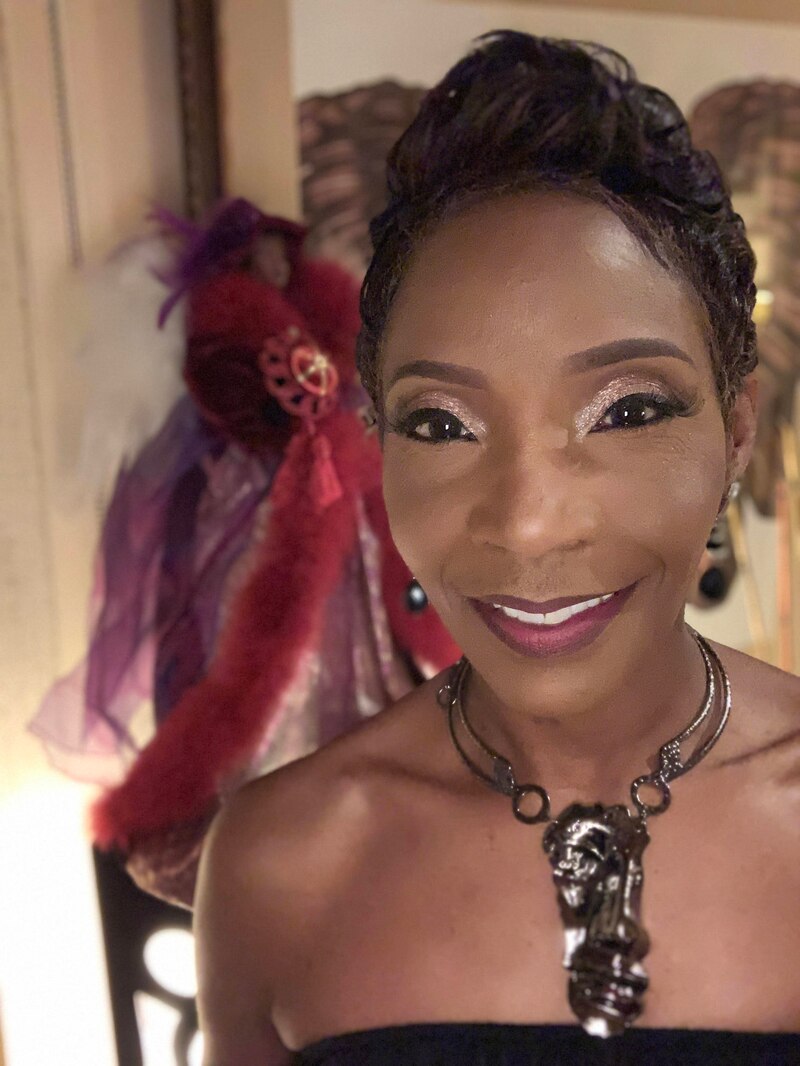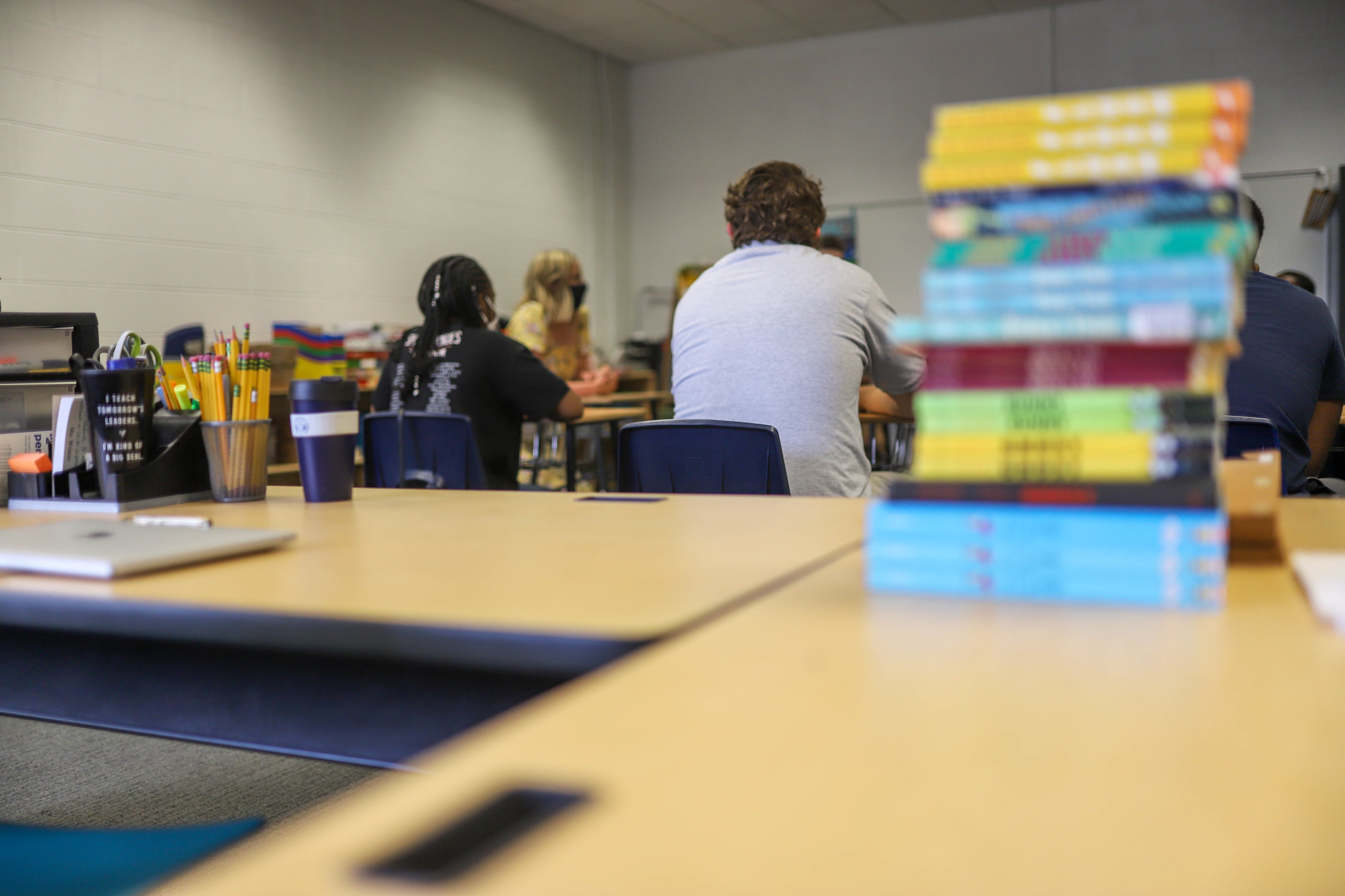Teaching wasn’t always Detroit native Janice Rowley’s career of choice.
“I worked very hard for a lot of years to not become a teacher,” Rowley, now an award-winning educator, recalled amusingly.
Her father, LeRoy, was the first African American man hired to teach instrumental music in Detroit Public Schools. A classically trained trombonist, LeRoy studied privately under notable symphony orchestra players and earned a master’s degree in musical education. With a career in the district spanning four decades, he left an undeniable legacy as both a music teacher, band director, and, eventually, tennis coach for a local high school team.
It’s that legacy, Rowley said, that grounds her approach to teaching.

As an English teacher at Detroit’s Renaissance High School, she leans on the wisdom and experience of her father as she educates the next generation of leaders and scholars. Rowley was a college professor before transitioning to K-12 education, and she carries that academic rigor into her classroom, teaching International Baccalaureate English, African American Literature, and Senate, an elective course in which students discuss and debate current events.
In August, the National Council of Teachers of English awarded Rowley the 2022 High School Teacher of Excellence Award. She spoke recently with Chalkbeat about what it’s like to teach in an education landscape that has changed dramatically since her father began his career, how she’s evolved as an educator, and what it means to equip her students with the knowledge and skills they need to be successful.
This interview has been lightly edited for length and clarity.
What’s your favorite lesson to teach and why?
I love teaching lessons that result in the proverbial ‘lights coming on’ while watching my students’ facial expressions and body gestures. Year after year, I ask my students what the African American population is in the city, state, and nation. Annually, the responses are the same – because many of these students are born and raised in Detroit, they have a false sense of what it even means to be in the minority. After allowing students to share what they think, I then share the facts, and they are floored every single time. It often results in students becoming more thoughtful or serious about their academic endeavors. They begin to realize that they are representing more than just themselves when they are working toward the mastery of any subject.
What’s something happening in the community that affects what goes on inside your classroom?
When students come from communities that experience myriad challenges, many of them come to me with a lens focused on finding a shortcut or an alternative path. I devote a good deal of time to explaining to students the value of spending time walking straight down the middle or doing the hard work now rather than later. We talk about how a lack of skill-building in high school can impact the dreams and desires they have to attend and graduate from college. I talk to them about the difference between mediocrity and mastery and how each impacts the quality of one’s life. I let my students know that there is no substitute for hard work nor is there a substitute for honor, and each goes a very long way.
How do you approach news events in your classroom?
In my IB English class, my students have already read, discussed, and presented about George Orwell’s “Shooting an Elephant.” All of the students had to be introduced to the term and the historical meaning and implication of imperialism. Following the initial announcements of the death of the Queen, I asked my students to investigate the history of colonialism that the Queen oversaw. The discussion was both intense and interesting for both me and my students. News events allow me to bring to life some of the concepts and theories that students need to have deep knowledge and understanding about.
Tell us about your own experience with school and how it affects your work today.
Education has always played an integral role in my life. I have always been a voracious reader and writer. Since moving from the collegiate classroom to K-12, I have been immensely disappointed with the brokenness of our educational system in this country. Every level of this enterprise was facing myriad challenges even before this lingering global pandemic. Today, education should really be a priority from the highest levels of our government as lack of a quality education affects all of us all of the time.
As you settle into this coming school year, what are you most looking forward to?
I am looking forward to seeing how much my students grow from now until next year. I am looking forward to working with the Student Senate to improve their outcomes with both the student body and their level of competition at the local and state level.
What’s the best advice you’ve ever received, and how have you put it into practice?
My father gave me the best advice all the time and it is a part of my pedagogy every day and all the time. Daddy used to always tell me to meet kids where they are so that I can take them where they need to be. He shared that sometimes I would have to get in the dirt, and there would be other times when I will feel like I am in a garden full of blooms. He made plain that there was a good deal of advantage in working with young people since – even in your darkest hour, the presence of the future is a constant reminder that this too shall pass, and that tomorrow will soon come.
What’s one thing you’ve read that has made you a better educator?
“Cultivating Genius: An Equity Framework for Culturally and Historically Responsive Literacy” by Gholdy Muhammad. The book is an amazing approach to meeting kids where they are to move them to where they need to be.
You have a busy job, and this is a stressful time. How do you take care of yourself when you’re not at work?
As a former sprinter and hurdler, I continue to exercise, eat healthy, and I drink a lot of water. The older I get, the more I understand how important wellness of all types is to overall health.
Ethan Bakuli is a reporter for Chalkbeat Detroit covering Detroit Public Schools Community District. Contact Ethan at ebakuli@chalkbeat.org.






